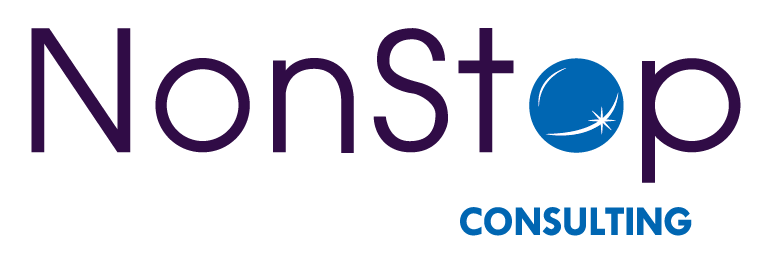In today’s competitive job market, technical skills alone are not enough to secure a job. According to NonStop Associate Director Jon McNab, employers are increasingly recognising the value of soft skills, which go beyond technical expertise and are crucial for effective collaboration, communication, and problem-solving.
In this article, Jon details the top 10 in-demand soft skills that can help job seekers stand out from the competition.
Communication
According to LinkedIn’s Workplace Learning Report, communication skills are consistently ranked as the most important soft skill by employers. Effective communication, both verbal and written, enables professionals to articulate ideas, collaborate with colleagues, and engage with clients. Companies value candidates who can clearly convey their thoughts and ideas.
“Good communication skills are probably one of the most sought-after soft skills amongst companies I’m currently working with, particularly for management and leadership roles, as well as client-facing roles. The ability to clearly communicate ideas and information in a way the other party can easily digest makes for much more efficient sales processes, for example,” Jon says.
Teamwork and Collaboration
Today’s work environment emphasises teamwork and collaboration. The ability to work well in a team, contribute ideas, and build relationships is highly sought after. Employers look for candidates who can collaborate effectively, respect diverse perspectives, and foster a positive team dynamic.
According to Jon, this brings business benefits such as efficiency and increased productivity, not to mention a feeling of inclusivity as everyone feels they are heard. This in turn creates a more engaged and motivated workforce.
Adaptability and Flexibility
In a rapidly evolving job market, adaptability is a key asset. As Jon says, employers are seeking candidates who can thrive in dynamic environments, embrace change, and quickly adapt to new technologies and processes.
This is increasingly important as businesses undergo digital transformations.
Problem-solving
Critical thinking and problem-solving skills are vital for navigating challenges, which as we all know, occur every day at work, Jon says. These can be small challenges but also complex ones and employers are increasingly valuing individuals who can proactively problem-solve themselves, rather than waiting for someone else in the business, an IT technician for example, to help out.
“When it comes to complex problems, particularly in project and business transformation roles, the ability to analyse situations, evaluate options, and develop innovative solutions is highly sought after. It’s about an ability to think creatively and approach problems from different angles,” Jon says.
Leadership
Leadership skills are not limited to managerial positions; they are valued across all levels of an organisation. Effective leadership involves motivating team members, making tough decisions, and guiding others towards a common goal.
According to Jon, his team is seeing employers seeking candidates who can take initiative, inspire others, and drive projects forward.
“In addition to helping drive projects forward, it’s also helpful for a business to be able to spot its future leaders. We’re seeing a lot of companies focus on retaining their employees and providing internal career paths such as routes to management level so it makes sense that they would like to see leadership skills developed and demonstrated even at junior levels.”
Emotional Intelligence
Emotional intelligence is gaining recognition as a valuable soft skill. It refers to the ability to understand and manage emotions, both in oneself and others.
“I think it’s an increasingly sought-after soft skill because it allows professionals to navigate interpersonal relationships, demonstrate empathy, and resolve conflicts constructively, which ultimately makes for a more efficient business.
“There have also been some research reports that say good emotional intelligence is a strong predictor of workplace success,” Jon says.
Time Management
Especially in fast-paced work environments, employers value candidates who can manage their time effectively to meet deadlines, deliver projects, and balance multiple responsibilities while maintaining overall productivity.
According to Jon, there are many benefits to a company when employees are able to effectively manage their time which ultimately leads to more work being accomplished in less time, therefore allowing the business to be competitive in its market.
“When employees can effectively prioritise tasks and allocate their time, critical projects can move forward at pace, allowing the business to develop,” he says.
In addition, great time management skills enable employees to optimise workflows, streamline processes, identify the most efficient ways to accomplish tasks, and cut down or eliminate unnecessary tasks.
“Another perhaps overlooked benefit is a reduction in stress and burnout as poor time management often leads to increased stress levels and feelings of being overwhelmed,” Jon says.
Creativity
Creativity is increasingly considered a crucial skill in the workplace with employers recognising that innovative thinking leads to fresh ideas, problem-solving, and competitive advantages.
“As mentioned above, creative thinking can be a very useful skill when it comes to problem-solving as people with this skill can think about the issue from different perspectives,” Jon says.
The ability to think outside of the box can foster an environment of continuous improvement and growth, which is crucial for any business wanting to differentiate itself from its competitors and gain a competitive advantage.
Networking
Building a strong professional network is essential for career growth and we’re seeing some employers value candidates with a proven ability to network and establish connections within and outside their organisations, Jon says.
“Not only is networking important to help unlock career opportunities and help employees progress their careers, but employers increasingly seem to recognise the value of tapping into a wider knowledge pool by leveraging those employee connections.”
Cultural Competence
In today’s globalised world, cultural competence is highly valued as it allows people to collaborate effectively in multicultural teams and serve diverse customer bases.
Companies are increasingly operating in diverse environments, and candidates who can navigate cultural differences, embrace diversity, and demonstrate inclusivity are sought after.
According to Jon this is particularly important for B2C companies as it allows the company and its employees to show empathy and engage with customers, adapt products to different cultural expectations, develop sales and marketing messaging that’s more likely to convert, and ultimately foster long-term customer relationships.
In conclusion, while technical skills are important, they are skills that can be learned and therefore the demand for soft skills, which are more innate continues to rise.
Employers recognise that individuals who possess strong soft skills as listed above are more likely to succeed in the workplace and therefore help the company succeed.
“Therefore, our advice for job seekers is to invest in developing these skills to increase their chances of landing their desired positions in today’s competitive job market, and be sure to highlight them on CVs,” Jon says.





